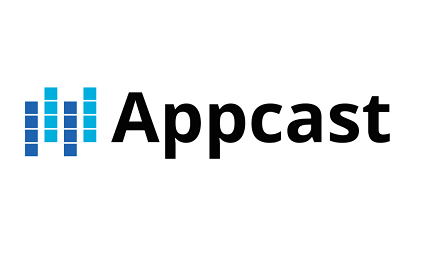Finding graduate jobs
You can start your graduate job search in a number of places. It's best to check a number of different resources regularly, as new listings will appear daily:
Graduate schemes
Some of the world's largest companies - many appearing in The Times Top 100 Graduate Employers - offer fiercely competitive graduate leadership programmes. In joining a graduate scheme, you'll earn a respectable salary and gain an invaluable insight into the many functions of a business - most schemes include allocated time in HR, IT, sales, finance and other departments.
Graduate schemes usually last one to two years, with the possibility of permanent employment if there's a job vacancy at the end. Although most schemes are open to graduates of any degree subject, most employers demand at least a 2:1 - or to be on track to achieve one, if you're still a student.
Applications for graduate schemes tend to open from autumn until spring, with assessment centres, interviews and psychometric testing taking place shortly after this window if you're successful.
Explore graduate schemes in more detail, or find out what's currently available by searching graduate schemes.
Internships
Internships are a valuable route towards gaining relevant, career-boosting experience and building useful contacts. They can last anywhere from a week to a year, be paid or unpaid and may lead to a permanent job.
An internship might be for you if you're looking to:
Find out more about internships, or to get started, search internships and work placements, and visit the Graduate Talent Pool.
Recruitment agencies
Recruitment agencies are outside firms who connect jobseekers with potential employers. Agencies look for candidates with qualifications relevant to the role, and in some cases recruit for roles not publically advertised. This speeds up the hiring process and ensures the jobs you're considered for will complement your skillset.
Specialist sector job agencies will have invaluable knowledge of their particular industry. They're well-connected, meaning your CV can be sent speculatively to numerous employers - including those you hadn't considered. By building a good relationship with your job agency, you're likely to land a role which is appropriate and satisfying for you.
Find out more about recruitment agencies.
Social media
Having a wealth of potential employers at your fingertips means staying in touch with the current job market has never been easier. Social media offers a quick and efficient solution to traditional networking and, as the online world is constantly open and updating, you'll be the first to know of any new vacancies if you're keeping an eye on companies via Facebook, Twitter and LinkedIn.
Not only is social media beneficial to your search, it helps your potential employers too - about 90% of employers now look at a candidate's social media accounts as part of the hiring process.
For more advice on how to optimise your social media presence, see job hunting and social media.
Networking
It may seem nerve-wracking, but networking can play a crucial part in finding a graduate job. Many jobs aren't publically advertised, but having the right contacts could mean you'll know about a vacancy before it hits the job boards.
Family, friends and colleagues are a good starting point, but continue to build your network through careers fairs, open days and workshops. Search the list of upcoming events.
Some contacts may be able to refer you elsewhere if they aren't hiring themselves, which gives other employers a great first impression of you and increases your chances of securing an interview.
You can now network from home by using social media platforms such as LinkedIn and Twitter to your advantage. Use a consistent username and image, and reference other platforms that you're using professionally to link them. Join relevant LinkedIn groups to get involved in discussions, and keep adding contacts to grow your network.
Speculative applications
A speculative application involves direct correspondence with a company without reference to a specific job vacancy. A speculative application shows initiative and portrays you as a confident and passionate candidate, giving you an opportunity to stand out from the crowd.
Discover how to write a speculative job application.
Self-employment
Deciding to go down the self-employed route is no mean feat - it'll require resilience, motivation, creativity, organisation and a generous helping of self-belief. In being your own boss, you'll be working to your own schedule, so you can plan your life and workload as you please.
There are several types of business you could set up, including but not limited to:
Becoming a freelancer or a consultant is another popular route into self-employment. Freelancers and consultants are common in the creative arts, journalism, IT, leisure and accounting, business and finance industries.
Find out more about self-employment.
Top five job-hunting tips
The Top 50 Job Boards for Job-Seekers
About this grading rubric list
There are thousands of job sites (job boards) on the Web. What follows are the what we think are the top 50 job Bboards for job-seekers. Just click on their logos and youre on your way to exploring some of the best online resources for finding a new job or career!

Mighty Recruiter
MightyRecruiter has an awesome database of 10 million+ unique jobseekers so you can find the right employees quickly and easily. Hire quality, hire faster with Mighty Recruiter!

LiveCareer
A meta-search job site that pulls job postings from more than 500 places, including the major job boards, the top 200 newspapers, hundreds of professional associations, and company career centers. Jobseekers can search for job listings by title, keywords, company, and location. No cost to jobseekers.

AppCast
Appcast allows employers to post their open jobs on a ‘pay-per-applicant’ understanding that includes a network of over 6,000 career and consumer sites. So, the big difference here is that you don’t pay per click or per post.

Jobg8
Jobg8 curates the most qualified jobseekers to fill the position.

Geebo
A “brick-and-mortar” forum where jobseekers can easily find job postings in most major US cities.

Indeed
A jobseeking platform that allows employers to post and job-seekers to search. Users can make their own Indeed Resume to use in job applications. The site even recommends jobs!

Jobs2Careers
Jobs2Careers is a pay-per-application job board with an efficient search engine for jobseekers.

Juju
JuJu primarily considers itself a job search engine, as opposed to an official job board. Users can easily find millions of open positions from a variety of sites.

MyJobHelper
MyJobHelper allows jobseekers to use a comprehensive search engine to find job postings. Jobseekers can filter based on salary, location, certain companies, job title, type of job, and length of time the post has been active.

Dice.com
a great job site for technology professionals. Jobseekers can search through thousands of job openings (by job type location as well as by metro area or employer) post your resume and confidential profile create an email job alert and find great career resources. Free to jobseekers.

JobTarget

CareerJet

Craigslist

FlexJobs

Glassdoor

Jooble

Recruit.net

Trovit

ActiveHire

JobisJob

JobInventory

Neuvoo

Getit.me

Gigajob

PostJobFree

Resume-Library

Purejobs

Totallyhired

BackPage

Recroup

SpringRole

Stack Overflow

US.jobs

Monster.com

Job.com

CareerBliss

Jobrapido

Restoration Media

SnagAJob.com

thingamajob.com


